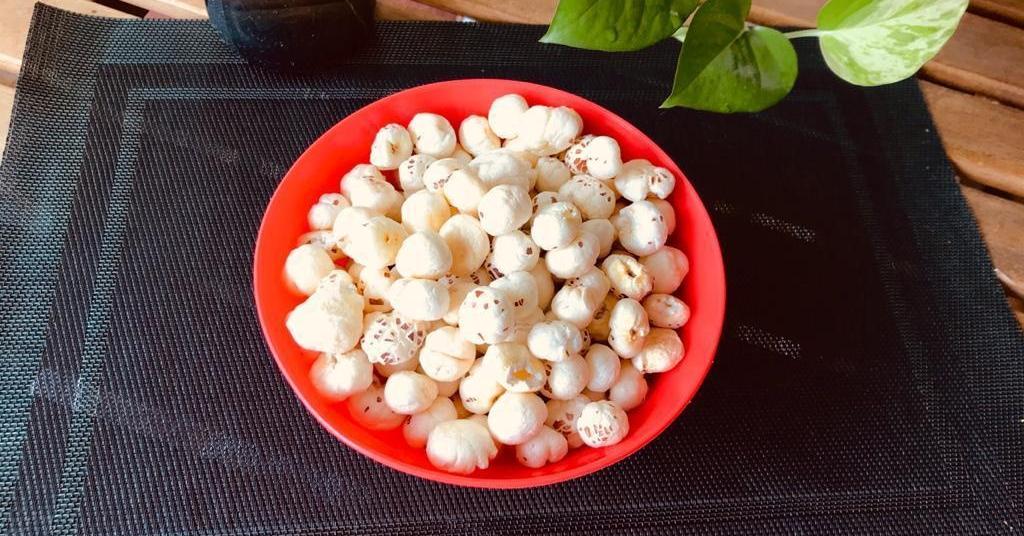Are you curious to know what is makhana? You have come to the right place as I am going to tell you everything about makhana in a very simple explanation. Without further discussion let’s begin to know what is makhana?
Nestled amidst the serenity of water bodies, a humble aquatic plant yields a treasure—Makhana, revered in ancient cultures for its nutritional richness and culinary versatility. Also known as fox nuts or lotus seeds, Makhana has emerged from traditional roots to captivate modern palates with its health benefits and delectable taste. In this blog post, we’ll embark on a journey to uncover the wonders of Makhana, exploring its origins, nutritional value, culinary uses, and its growing popularity in contemporary wellness practices.
What Is Makhana?
Makhana, native to Asia, particularly found abundantly in India, grows in marshy areas and ponds. The seeds are harvested from the lotus flower (Nelumbo nucifera), a plant revered for its cultural and religious significance in various traditions.
Nutritional Profile:
Despite their lightweight and crunchy texture, Makhana seeds pack a nutritional punch:
- Low in calories and high in protein, making them a wholesome snack choice.
- Rich in calcium, magnesium, potassium, and phosphorus, supporting bone health and vital bodily functions.
- Abundant in antioxidants like flavonoids, aiding in combating free radicals and promoting overall well-being.
Culinary Uses And Versatility:
Makhana’s versatility extends to culinary applications:
- Snack Delight: Roasted or seasoned Makhana makes for a nutritious and satisfying snack option.
- Culinary Ingredient: Its mild flavor and crunchiness make it a versatile ingredient in both savory and sweet dishes, used in curries, desserts, and more.
- Dietary Substitution: Makhana flour serves as a gluten-free alternative in baking or as a thickening agent in recipes.
Health And Wellness Benefits:
- Digestive Health: Makhana seeds are easily digestible and can aid in digestion, thanks to their high fiber content.
- Weight Management: Being low in calories and high in protein, they make for a satiating snack, assisting in weight management.
- Blood Sugar Regulation: With a low glycemic index, Makhana can help in regulating blood sugar levels.
- Anti-Inflammatory Properties: Antioxidants present in Makhana contribute to reducing inflammation in the body.
Modern Resurgence And Popularization:
Makhana has experienced a resurgence in recent years, embraced by health-conscious individuals and culinary enthusiasts globally. Its nutrient density, versatility, and adaptability to various diets have contributed to its popularity as a superfood.
Conclusion:
Makhana, once a traditional staple, now stands at the forefront of wellness-driven cuisine, admired for its nutritional bounty and gastronomic appeal. Its journey from ancient cultural reverence to modern dietary acclaim showcases the timeless allure and adaptability of nature’s offerings. As we embrace a holistic approach to well-being, Makhana stands as a testament to the wisdom and nourishment that indigenous foods impart, inviting us to savor its benefits and flavors, while honoring the legacy of this nutritional gem from the bountiful lap of nature.
FAQ
What Is Makhana Made From?
Makhana is a type of seed derived from the Euryale ferox plant. They’re also sometimes referred to as fox nuts or lotus seeds. Makhanas are widely cultivated throughout Asia and often used in traditional forms of medicine to treat various conditions.
What Are Makhana Good For?
Makhana also detoxifies the liver, helps regulate blood sugar levels for diabetic patients, and strengthens bones due to their calcium content. They aid in weight loss by being low in cholesterol and calories, maintain hormonal balance, support a healthy digestive system, and are beneficial for female fertility.
What Are Makhana In English Called?
Makhanas, also called foxnuts or lotus seeds in English are mostly consumed during fasting, thanks to their strong nutritional value. Makhanas, also called foxnuts or lotus seeds in English are mostly consumed during fasting, thanks to their strong nutritional value.
Why Is Makhana So Expensive?
How makhana is made | Makhana farming – So, let’s see How Fox nuts are grown and why are they so expensive? Fox nut farming (Makhana Farming) is a long tough process and that is why their market price is high. Water lily seeds which are also known as Foxnuts look like popcorn and are a popular snack in Bihar.
I Have Covered All The Following Queries And Topics In The Above Article
What Is Makhana Made Of
What Is Makhana Made Up Of
What Is Makhana In Tamil
What Is Makhana Called In English
What Is Makhana Made Of
What Is Makhana In English
What Is Makhana Good For
Side Effects Of Makhana
What Is Makhana Made Of Which Plant
Makhana Benefits For Female
How To Eat Makhana
How Is Makhana Made From Lotus Seeds
What Is Makhana






